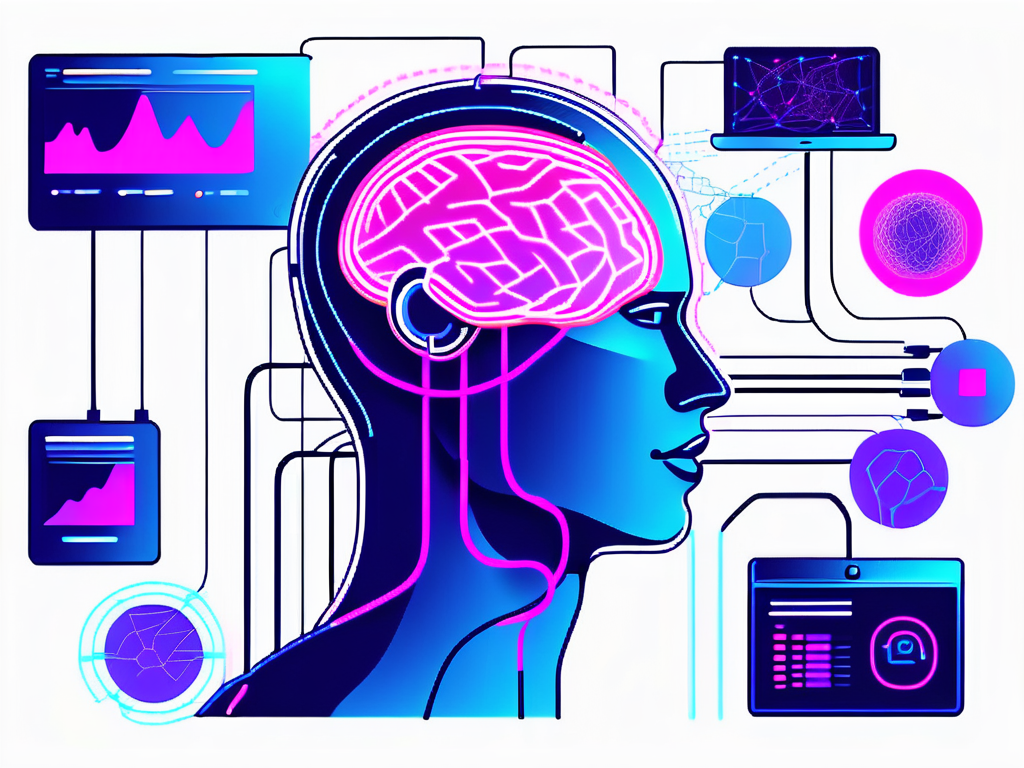The field of neurodiagnostics is rapidly evolving, with new technologies and methodologies reshaping the landscape. As such, hiring trends in this sector are also changing, reflecting the need for professionals who can keep pace with these developments. In this context, we will explore the key trends that are likely to shape neurodiagnostics hiring in the coming years.
The Growing Demand for Specialized Skills
One of the most significant trends in neurodiagnostics hiring is the increasing demand for specialized skills. As the field becomes more complex and specialized, employers are seeking professionals who have specific expertise in areas such as neuroimaging, electrophysiology, and neuroinformatics.
Moreover, with the advent of advanced technologies such as artificial intelligence and machine learning, there is a growing need for neurodiagnostics professionals who are adept at leveraging these tools to enhance diagnostic accuracy and efficiency. This trend is likely to continue in the coming years, making specialized skills a key requirement in neurodiagnostics hiring.
Neuroimaging Specialists
Neuroimaging is a critical component of neurodiagnostics, enabling healthcare professionals to visualize the structure and function of the brain. As such, there is a high demand for neuroimaging specialists who can operate and interpret the results of sophisticated imaging technologies such as MRI and PET scans.
These professionals need to have a deep understanding of neuroanatomy and neurophysiology, as well as the ability to apply this knowledge in a clinical context. They also need to stay abreast of the latest advancements in neuroimaging technology, which are continually evolving and improving.
Electrophysiology Experts
Electrophysiology, the study of the electrical properties of biological cells and tissues, is another area of neurodiagnostics that requires specialized expertise. Electrophysiology experts are responsible for conducting tests such as electroencephalograms (EEGs) and nerve conduction studies, which are essential for diagnosing a wide range of neurological conditions.
These professionals need to have a strong foundation in neuroscience, as well as the technical skills to operate electrophysiology equipment. They also need to be skilled at interpreting the results of these tests, which can be complex and nuanced.
The Rise of Tele-neurodiagnostics
Another key trend in neurodiagnostics hiring is the rise of tele-neurodiagnostics. This involves the remote delivery of neurodiagnostic services, enabling patients to receive care from the comfort of their own homes. This trend has been accelerated by the COVID-19 pandemic, which has highlighted the benefits of remote healthcare delivery.

As a result, there is a growing demand for neurodiagnostics professionals who are skilled at providing tele-neurodiagnostic services. This includes the ability to conduct remote patient assessments, interpret neurodiagnostic tests remotely, and communicate effectively with patients and other healthcare professionals in a virtual setting.
Remote Patient Assessments
Conducting remote patient assessments is a key aspect of tele-neurodiagnostics. This involves using video conferencing technology to interact with patients, as well as remote monitoring devices to collect data on the patient’s neurological function.
Professionals who are skilled at conducting remote patient assessments need to be adept at using these technologies, as well as interpreting the data they collect. They also need to have strong communication skills, as they will need to build rapport with patients and explain complex neurological concepts in a clear and understandable way.
Remote Interpretation of Neurodiagnostic Tests
Another important aspect of tele-neurodiagnostics is the remote interpretation of neurodiagnostic tests. This involves analyzing the results of tests such as EEGs and MRI scans remotely, using digital platforms.
Professionals who are skilled at remote interpretation need to have a deep understanding of neurodiagnostics, as well as the ability to use digital platforms effectively. They also need to be able to communicate their findings clearly and concisely, as they will often need to explain the results of these tests to patients and other healthcare professionals.
The Importance of Continuing Education
Given the rapid pace of change in the field of neurodiagnostics, continuing education is becoming increasingly important. Neurodiagnostics professionals need to stay up-to-date with the latest advancements in their field, in order to maintain their expertise and stay competitive in the job market.
As such, employers are placing a greater emphasis on continuing education in their hiring decisions. Professionals who are committed to lifelong learning, and who have a track record of pursuing additional training and certifications, are likely to be more attractive to employers.
Professional Development Opportunities
There are many opportunities for professional development in the field of neurodiagnostics. This includes attending conferences and seminars, participating in workshops, and completing online courses. These activities can help professionals stay abreast of the latest research and developments in their field, and can also provide opportunities for networking and collaboration.
Moreover, many professional organizations offer certification programs in neurodiagnostics. These certifications can demonstrate a professional’s expertise in a particular area of neurodiagnostics, and can enhance their credibility and marketability in the job market.
The Role of Employers
Employers also have a role to play in supporting the continuing education of their employees. This can include providing funding for professional development activities, offering in-house training programs, and creating a culture that values and encourages lifelong learning.
By investing in the continuing education of their employees, employers can ensure that their workforce stays up-to-date with the latest advancements in neurodiagnostics. This can enhance the quality of care they provide to patients, and can also help them attract and retain top talent in the field.
Conclusion
In conclusion, the field of neurodiagnostics is undergoing significant changes, and these changes are being reflected in hiring trends. The demand for specialized skills, the rise of tele-neurodiagnostics, and the importance of continuing education are all key trends that are likely to shape neurodiagnostics hiring in the coming years.
By understanding these trends, professionals can better prepare themselves for the future of neurodiagnostics. Whether it’s developing specialized skills, becoming adept at tele-neurodiagnostics, or committing to lifelong learning, there are many ways that professionals can position themselves for success in this exciting and rapidly evolving field.
Advance Your Career with Neuro Pathway
Ready to navigate the future of neurodiagnostics and elevate your career? Neuro Pathway is your dedicated partner in this journey. With our specialized focus on matching Neurodiagnostic Professionals with leading hospitals and private organizations, we offer full and part-time staffing solutions tailored to your expertise. Our Career Coaches are committed to your professional growth, providing resources, education, and exclusive employment opportunities. Don’t miss out on the chance to be at the forefront of neurodiagnostics hiring trends. Find New Job Opportunities today and take the next step in your career with Neuro Pathway.





